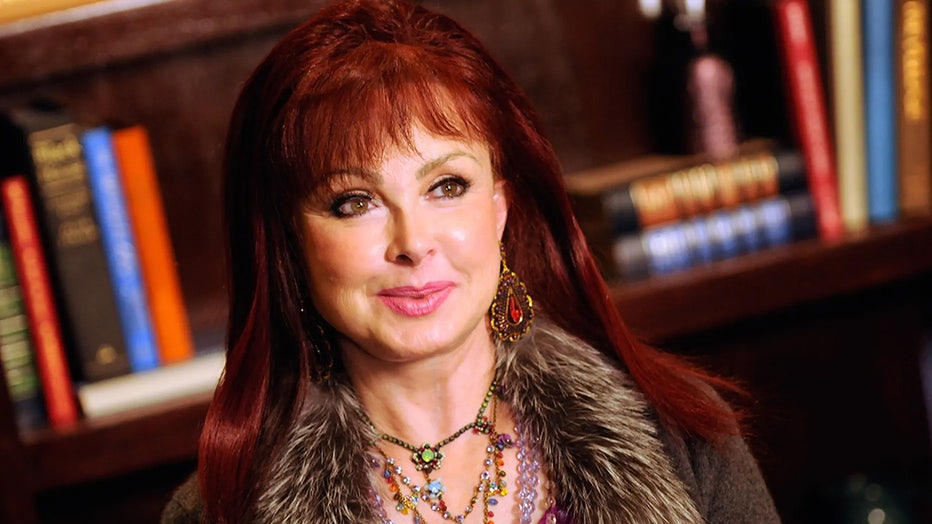Death of Naomi Judd highlights risk of depression, suicide in older Americans

Death of Naomi Judd highlights depression's toll on older Americans
A geriatric psychiatrist Mia Robinson White says she was touched by the openness with with Naomi Judd and her daughters shared her struggles with mental illness.
Editor's note: This story discusses suicide. If you or someone you know is having thoughts of suicide, please contact the National Suicide Prevention Lifeline at 1-800-273-TALK (8255).
After country star Naomi Judd's death Saturday, April 30, at the age of 76, her daughters Ashley and Wynonna Judd tweeted, "We lost our beautiful mother to the disease of mental illness. We are shattered."
Dr. Mia Robinson White, a geriatric psychiatrist with Kaiser Permanente Georgia, says she was touched by their openness about their mother's longstanding depression.
"So, for me, the takeaway was opening the dialogue about mental illness as an illness," Robinson White says. "What we're learning, is, some people are open about their symptoms, but a lot are still hiding them."
That may be especially true for older adults, she says,
"Therapy, or medication, talking about your feelings or emotions, and even culturally, may just not have been culturally accepted," she says. "So, I think if we can meet people where they are, break down those barriers to treatment, normalize it, as if it is an illness, normalize it."
NAOMI JUDD, GONE AT 76, WROTE ABOUT HER MENTAL ILLNESS IN RECENT BOOK
Dr. Robinson White says depression in seniors can be a chronic, decades-long illness, or a new illness diagnosed in their early sixties or beyond.
"It's about half-and-half, that are diagnosed from their twenties or thirties, and now it's a chronic illness, and we're still treating the depression," she says. "And (there are ) those who are presenting with depression now, as a senior. I will say during the pandemic, that prevalence has increased."

Naomi Judd died by suicide following a longtime struggle with mental health, according to a new report. The country legend took her own life on Saturday, multiple sources confirmed to People magazine. (Photo by Stephen Cohen/Getty Images)
REPORT: COUNTRY ICON NAOMI JUDD DIED BY SUICIDE FOLLOWING LONGTIME MENTAL HEALTH STRUGGLE
Health problems can also trigger or worsen depression.
Dr. Robinson White there are some key warning signs of depression.
"So, (look for) changes in appetite or sleep, too much or two little of either,"she says. "Avoidance socially. Not answering calls, not returning messages, waiting until the last minute to decline an invitation socially.
Primary care providers may see the signs in their older patients, too.
"You may have a patient that is scheduling multiple appointments with new physical complaints with every visit," Robinson White says. "That can be a telltale sign, of more somatic complaints, that there might be an underlying depression."
Older adults with depression are also at risk for suicide.
Seniors make up about 12% of the US population and about 18% of all suicide deaths, according to the National Council on Aging.
In 2017, about 8,500 Americans age 65 and older died from suicide.
Dr. Robinson White says it can be a hard topic to bring up.
"There are certain things we don't ask older people," she says. We don't ask them, 'Have you thought about killing yourself?' In some ways, it seems disrespectful. But, we also have to learn to break those barriers."
If you're not sure how to ask about suicide, Dr. Robinson White recommends a gentle approach, beginning with open-ended questions.
"We may do this in a private setting, more one-on-one, on a walk, versus having someone feel confined or confronted," she says. "And, say, 'Are their days when you feel there are things you don't want to do anymore, and what are some of those things?' See where it leads. If someone says, 'It's a struggle for me, living in general,' then that opens up that next question."
If you are concerned someone you know may be at risk of suicide, the National Suicide Prevention Lifeline can provide free, confidential support for people who are in distress and resources for you.
The Lifeline is 1-800-273-TALK (8255) and is open 24 hours a day, 7 days a week in the US.
Starting June 16, 2022, callers anywhere in the US will be able to dial 988 to be routed to the National Suicide Prevention Lifeline.

